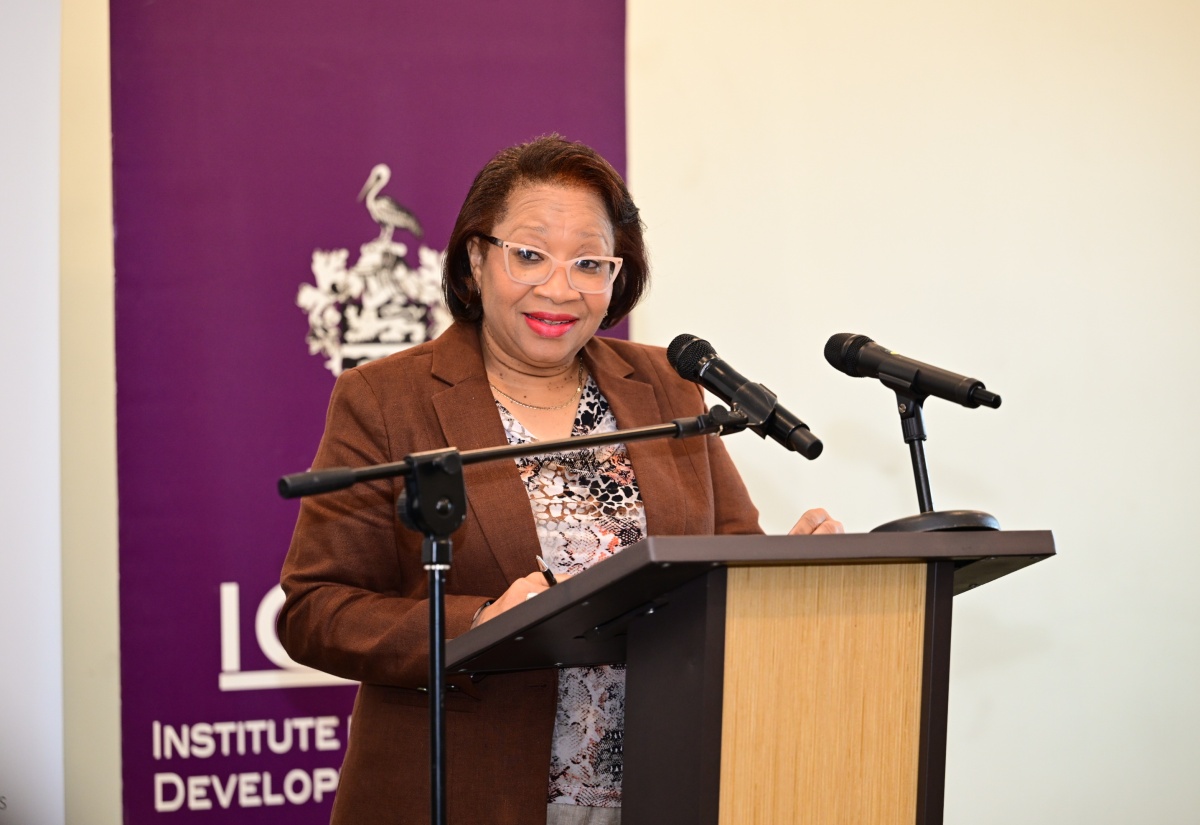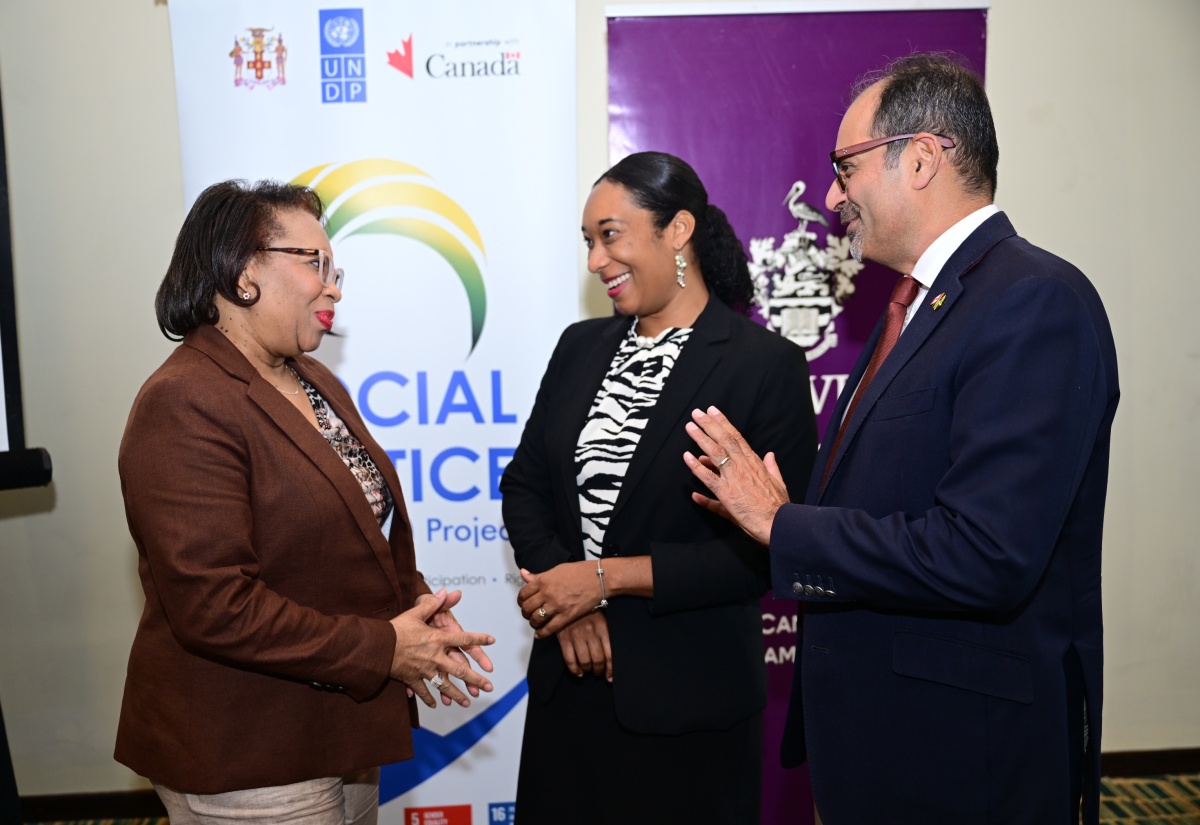700 Criminal Justice Stakeholders Targeted for Training
By: , August 21, 2025The Full Story
Seven hundred members of Jamaica’s criminal justice system are being targeted for participation in an islandwide series of social justice and gender sensitivity training workshops, designed to improve access to justice for vulnerable communities.
The workshops, which were launched during a ceremony at the Courtyard by Marriott Hotel in Kingston on Wednesday (August 20), will engage key stakeholders, including police officers, Justices of the Peace, and mediators.
The training forms part of the Social Justice (SO-JUST) Project, funded by the Government of Canada and implemented by the Ministry of Justice in collaboration with the United Nations Development Programme (UNDP).
Speaking during the launch, Permanent Secretary in the Ministry, Grace-Ann Stewart McFarlane, noted that the initiative will strengthen Jamaica’s justice sector, making it more inclusive, equitable and gender sensitive.
“This training is critical because it addresses gaps in how justice services are delivered, especially to those who experience multiple and overlapping forms of marginalisation, such as women, children, persons with disabilities and members of rural and underserved communities,” she outlined.
Mrs. Stewart McFarlane said by deepening justice sector professionals’ understanding of gender dynamics, trauma, and social justice, the Government is fostering a more empathetic, inclusive, and effective justice system.
She indicated that the Ministry has undertaken several key initiatives to bridge gaps in the justice sector and ensure equitable access to justice for all Jamaicans.
In his remarks, Counsellor and Head of Development Cooperation at the High Commission of Canada in Jamaica, Shehryar Sarwar, reaffirmed Canada’s commitment to supporting Jamaica’s efforts to build an inclusive, equitable, and responsive justice system that meets the needs of all citizens.

He emphasised that the workshop series “builds on over 15 years of partnership and progress in justice reform and is designed to ensure that those who face the greatest barriers to justice are not left behind”.
Mr. Sarwar noted that the series was developed and is being delivered in partnership with the University of the West Indies (UWI), Mona, through its Institute of Gender and Development Studies (IGDS), under the leadership of the institute’s Head, Dr. Dalea Bean.
“The curriculum covers key areas such as gender sensitivity, trauma-informed responses, community engagement, and intersectionality,” he shared.
Mr. Sarwar emphasised that gender sensitivity is more than a technical skill, noting that it is a vital lens through which justice must be understood and delivered.
“It involves recognising and responding to the different ways that women and men, boys and girls, experience and interact with the justice system. In policing, it helps build trust and reduce harm. In justice delivery, it ensures that laws and procedures do not unintentionally reinforce inequality; and in survivor-centred approaches, it allows us to respond with empathy, dignity, and respect for the individual’s lived experiences,” he outlined.
For her part, Dr. Bean shared that the IGDS is honoured to be a part of what she described as an “exciting worthwhile gender and human rights training programme”.
“As part of this 30-year-old institution at the UWI, we are no strangers to the capacity-building of our nation’s justice warriors. We are proud to continue the Institute’s Caribbean-wide legacy of training, teaching, outreach, and activism, all within the context of gender justice and anti-discrimination,” she declared.

In her remarks, Assistant Resident Representative at the UNDP Multi Country Office in Jamaica, Lesley-Ann Ennevor, noted that the launch of the training series represents another significant step in realising Jamaica’s vision of a more accessible and inclusive justice system.
She emphasised that through the initiative, “700 stakeholders across Jamaica’s criminal justice system are being prepared to serve those typically overlooked and left behind, sensitive to their unique issues and concerns”.
They include persons with disabilities, women in crisis, children in contact and conflict with the law, individuals living with mental health challenges, and persons from rural areas.
“We know that individuals and communities living with poverty, discrimination, gender-based violence, and disability face barriers that are not only systemic, but deeply personal. Through this workshop, we send a clear message that justice must be delivered with fairness, empathy, and without prejudice,” Mrs. Ennevor affirmed.
She noted that two preliminary workshop sessions – one in St. Mary and the other in Kingston – were held ahead of Wednesday’s launch, engaging a total of 78 participants.
A third session, facilitating approximately 70 participants, followed this morning’s launch ceremony at the Courtyard by Marriott Hotel.



